Table of Contents
- Quick Answer: Best Spices for Soup
- The Top 7 Best Spices for Soup (With Practical Tips)
- 5 Pro Tips for Using Spices in Soup Perfectly
- Best Spice Pairings for 5 Popular Soups
- Simple Spice Timing Guide
- How to Make Soup Taste Restaurant-Quality
- Soup Spice FAQs Solved
Quick Answer: Best Spices for Soup
For most soups, these 3 spices make the biggest difference: bay leaves (adds depth to broths), black pepper (freshly ground for brightness), and turmeric (for color and earthy notes). If you're making tomato soup, add a pinch of sugar with your spices to balance acidity. For creamy soups, toast cumin seeds first to bring out their nutty flavor. These simple techniques transform bland broth into flavorful soup every time.

Many home cooks struggle with flat-tasting soup because they add spices at the wrong time or use pre-ground versions. This guide shows exactly when and how to use each spice for maximum flavor—no food science degree required. We've tested these techniques across dozens of soup recipes so you get reliable results.
The Top 7 Best Spices for Soup (With Practical Tips)
These are the most versatile spices that work across different soup types. Each recommendation includes simple techniques you can use immediately.
1. Bay Leaves
Add 1-2 whole leaves at the beginning of cooking for chicken or vegetable soup. Remove before serving. They add a subtle depth that makes broth taste richer without overpowering other flavors. Pro Tip: Don't crush them—they'll make your soup bitter.
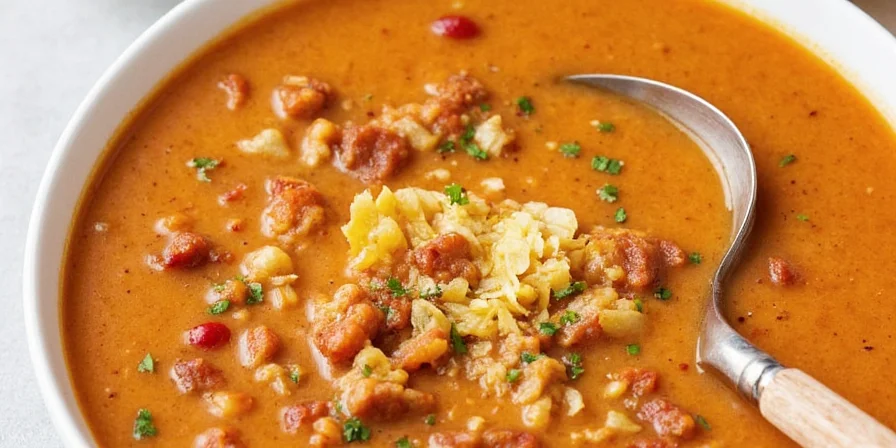
2. Turmeric
Use 1/4 teaspoon per 4 cups of broth for golden color and earthy flavor in chicken soup or lentil soup. Pro Tip: Mix with black pepper first—this boosts absorption and flavor. Add during the last 10 minutes of cooking to preserve its bright color.
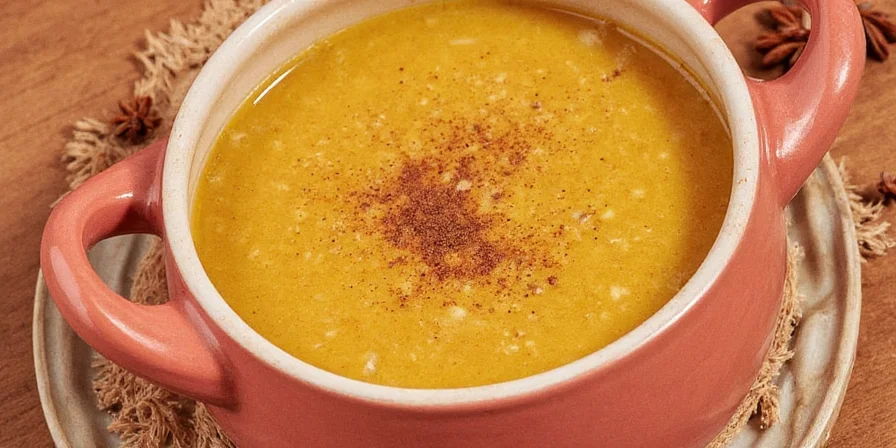
3. Cumin
Toast 1 teaspoon whole seeds in oil for 1 minute before adding broth to bean soups or chili. This simple step brings out its warm, nutty flavor. Pro Tip: Avoid pre-ground cumin—it loses flavor quickly. Grind seeds just before use for best results.
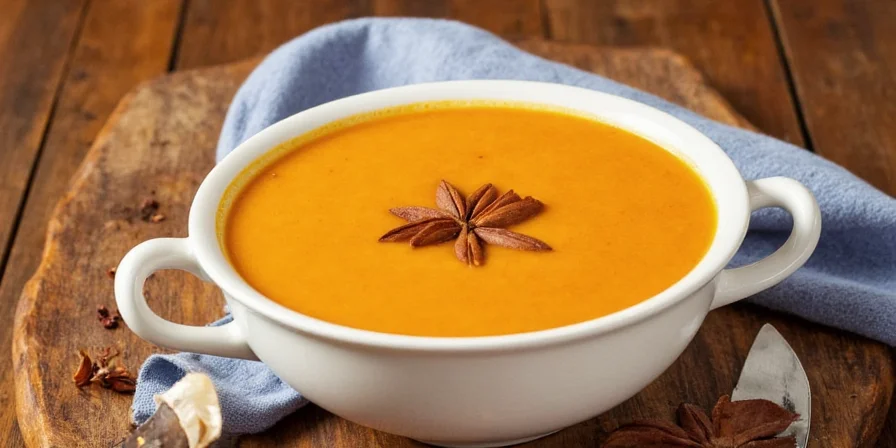
4. Paprika (Sweet & Smoked)
Add 1/2 teaspoon at the end of cooking to tomato soup or potato soup. Smoked paprika gives a subtle campfire note without making soup taste burnt. Pro Tip: Never boil paprika—it turns bitter. Stir in during the last 2 minutes.
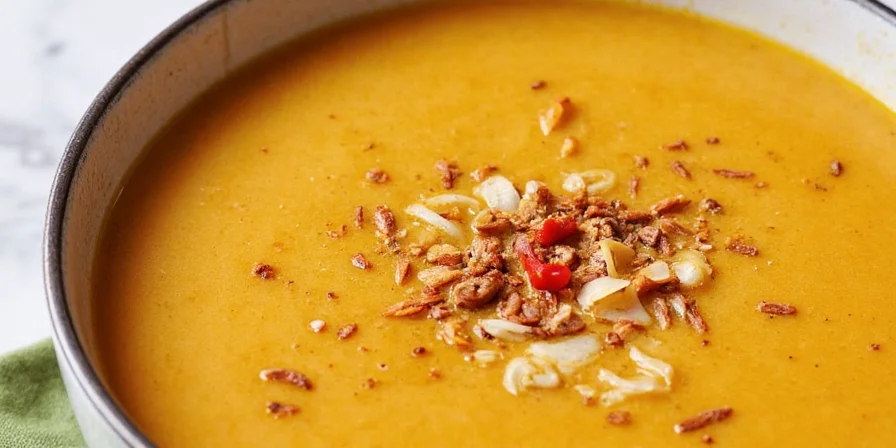
5. Black Pepper
Always use freshly ground pepper in soup. Add 1/4 teaspoon at the very end for best flavor. Pro Tip: Pre-ground pepper loses its punch quickly. Keep a pepper mill next to your soup pot for perfect seasoning every time.

6. Coriander
Use 1 teaspoon ground coriander in root vegetable soups or Indian dals. It cuts through bitterness naturally. Pro Tip: Pair with cumin—these spices work better together than alone in most soups.
7. Cinnamon
Add a small pinch (1/8 teaspoon) to tomato-based soups or Moroccan chickpea soup. It reduces acidity without adding sweetness. Pro Tip: Use Ceylon cinnamon—it's milder and blends better in soups than regular cinnamon.
5 Pro Tips for Using Spices in Soup Perfectly
- Toast dry spices first: Heat spices in oil for 1 minute before adding liquid. This simple step makes flavors 3x stronger.
- Add hard spices early: Whole spices like bay leaves and cinnamon sticks need 20+ minutes to release flavor.
- Add delicate spices late: Ground spices like paprika and pre-ground pepper should go in during the last 5 minutes.
- Finish with acid: A splash of lemon juice or vinegar at the end makes spices pop without adding extra salt.
- Taste as you go: Add spices in small amounts, waiting 5 minutes between additions to let flavors develop.
Best Spice Pairings for 5 Popular Soups
| Soup Type | Best Spice Combination | When to Add Them |
|---|---|---|
| Tomato Soup | Bay leaf + pinch of sugar + black pepper | Bay leaf at start, sugar with tomatoes, pepper at end |
| Chicken Noodle | Bay leaf + celery seed + fresh parsley | Bay leaf at start, celery seed midway, parsley at end |
| Lentil Soup | Turmeric + cumin + coriander | All toasted in oil first, then added to broth |
| Coconut Curry Soup | Coriander + cardamom + lime juice | Coriander/cardamom early, lime at end |
| Vegetable Soup | Bay leaf + thyme + black pepper | Bay leaf/thyme early, pepper at end |
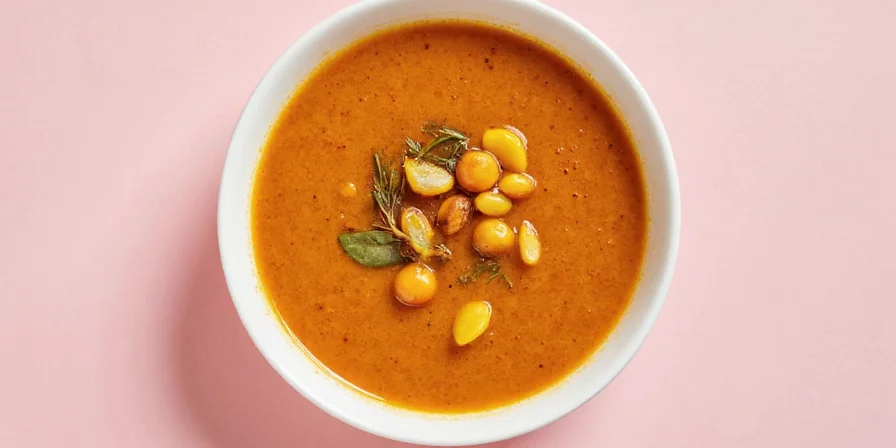
Simple Spice Timing Guide
Follow this chart for perfect spice timing every time:
| Spice Type | When to Add | Amount per 4 Cups Broth |
|---|---|---|
| Whole spices (bay leaf, cinnamon stick) | First 5 minutes | 1-2 pieces |
| Seeds (cumin, coriander) | Toasted in oil first | 1 teaspoon |
| Ground spices (turmeric, paprika) | Last 5-10 minutes | 1/4-1/2 teaspoon |
| Fresh herbs (parsley, cilantro) | Right before serving | 1 tablespoon chopped |
| Pepper | At the very end | Freshly ground to taste |
How to Make Soup Taste Restaurant-Quality
The secret to amazing soup isn't expensive ingredients—it's knowing when and how to use basic spices. Start with these simple steps:
- Toast whole spices in oil before adding broth
- Add hard spices early, delicate ones late
- Finish with fresh pepper and a splash of acid
Try this with your next batch of chicken soup: toast 1 teaspoon cumin seeds in oil, add bay leaf with broth, then finish with fresh pepper and lemon juice. You'll notice an immediate difference in flavor depth. These techniques work for almost any soup recipe—just adjust spice amounts to your taste.
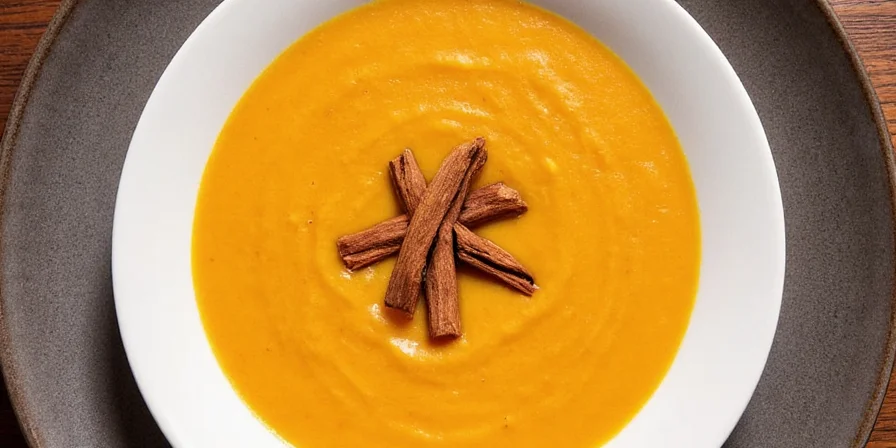

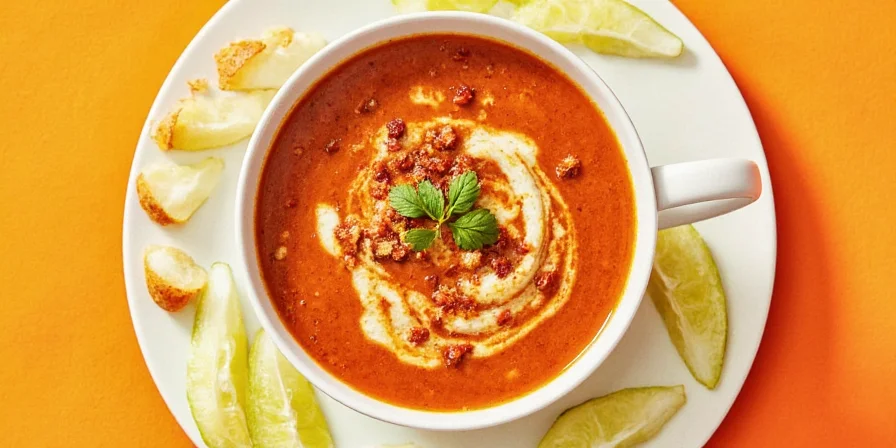









 浙公网安备
33010002000092号
浙公网安备
33010002000092号 浙B2-20120091-4
浙B2-20120091-4